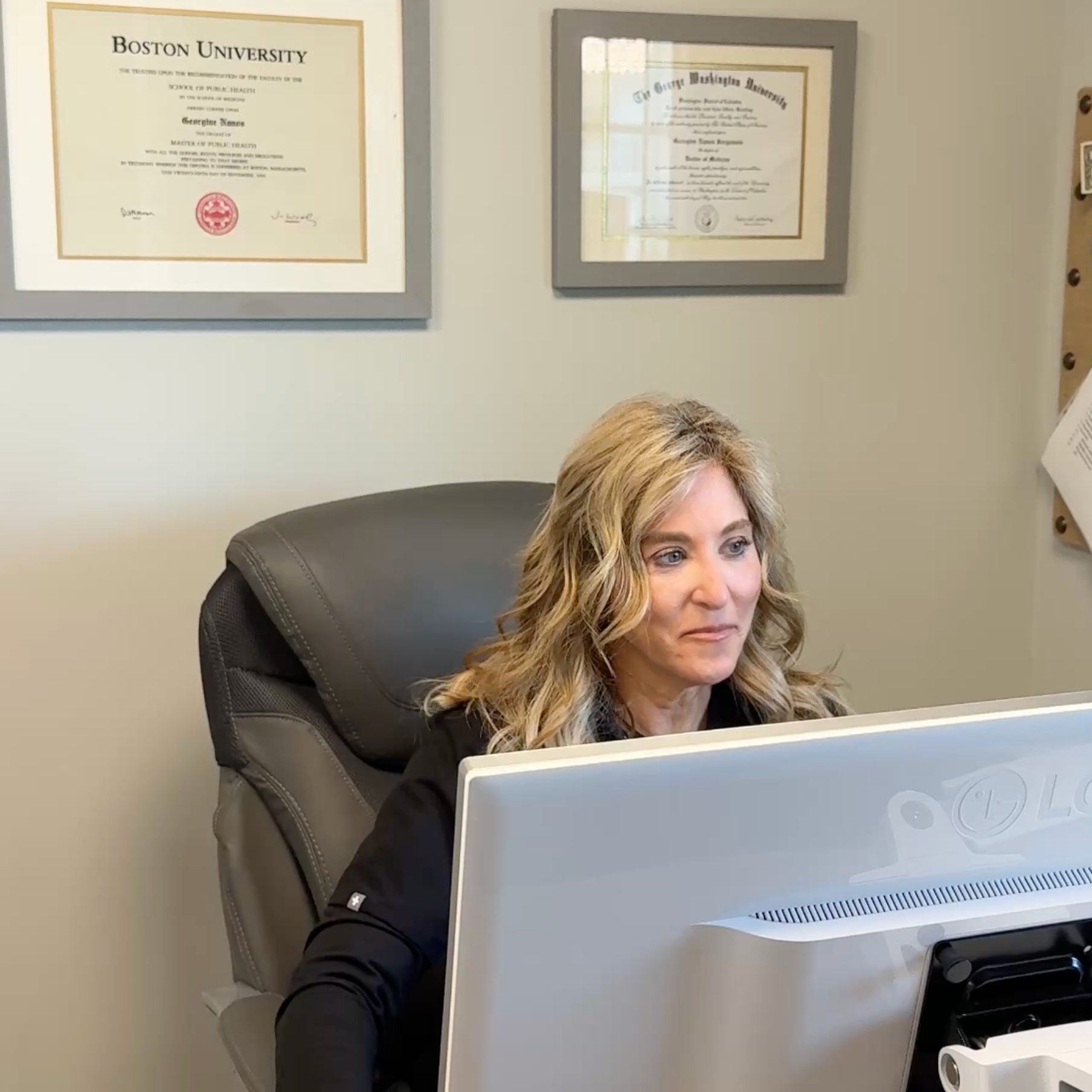Beyond Kegels: The Modern Approach to Pelvic Floor Wellness After Motherhood
August 4, 2025
Women accept way too much as "normal" after having kids

The phone call last Tuesday still bothers me. A patient cancelled her Emsella
appointment for the third time. When I asked my staff why, they said she was "too embarrassed to discuss it."
This woman has been dealing with bladder leakage for six years. Six years of crossing her legs when she laughs, avoiding her kids' trampoline parties, and feeling like her body betrayed her. But she's too embarrassed to have a conversation that could literally change her life.
I get it, though. Pelvic floor issues feel intensely personal.
Nobody wants to admit they pee a little when they sneeze. It's easier to make jokes about "mom bladder" than actually address it.
But here's the thing that drives me crazy as a physician: this is completely fixable. Women are suffering unnecessarily because they think Kegels that don't work means they're stuck forever.
Michelle finally came in after avoiding the appointment for months. Her breaking point was her daughter's birthday party at Sky Zone. All the other moms were jumping on trampolines with their kids. Michelle sat in a plastic chair the entire time, watching.
"I felt like such a failure," she told me. "Emma kept asking why I wouldn't play with her."
That hit me hard. Kids don't understand why mom suddenly can't do fun stuff anymore.
Michelle had been doing Kegels religiously since her first pregnancy eight years ago. In the car, brushing her teeth, during boring work calls. Her old doctor said they'd help. Her friends all said the same thing. But nothing changed.
Nobody had bothered to explain that her pelvic floor works as part of a team. When I examine patients, I explain it like this: imagine your core as a box. Your diaphragm is the top, your abs are the front, your back muscles are behind, and your pelvic floor is the bottom. If the bottom is broken, the whole box collapses.
That's why Michelle's Kegels weren't working. She was trying to fix one broken part while ignoring the fact that the entire system was out of whack.
Emsella was honestly a tough sell at first. Michelle looked at the chair and said, "This is supposed to fix me?"
Fair question. It looks like furniture from a fancy hair salon. But the technology creates 11,000 muscle contractions in 28 minutes. Contractions way more intense than anything Michelle could do voluntarily. More importantly, it retrains her pelvic floor to work with her core muscles again.
The first session, Michelle brought a magazine. She sat there fully clothed, reading about some celebrity drama while her muscles got the workout of their lives. No weird positions, no trying to figure out if she was squeezing the right thing.
Week three was when things clicked. Michelle texted me: "Made it through entire spin class without worrying about leaking. First time in years."
But the real victory came at her nephew's birthday party six weeks later. Another trampoline place. This time Michelle sent me a video of her jumping with all the kids, laughing her head off.
That's what I love about this work. Michelle didn't just get better bladder control. Her posture improved because her pelvic floor was finally supporting her spine properly. Her core felt stronger during workouts. Her confidence came back in ways that surprised even her.
Her husband noticed immediately. Not just the physical stuff, but how she carried herself. More relaxed at social events. More willing to be spontaneous. More present during intimate moments instead of worried about her body failing her.
The environment at our practice matters too. Michelle said addressing these concerns here felt natural instead of clinical. "It doesn't feel like a doctor's office," she told me. "More like somewhere I'd actually want to spend time."
Twenty-eight minute sessions, no downtime, no special preparation. Michelle usually comes during lunch and goes straight back to work. The technology does everything while she relaxes.
After twenty years of practice, I've learned that women accept way too much as "normal" after having kids.
Michelle's story proves that acceptance isn't necessary. Sometimes you just need technology that can reach muscles exercise can't touch.
The phone keeps ringing with women asking about Emsella
now. Word spreads fast when someone gets their life back.









